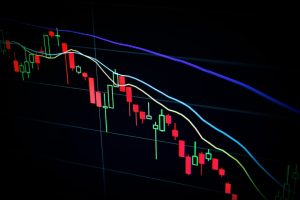Digital forex trading, also known as forex trading or foreign exchange trading, is the process of buying and selling currencies in the digital marketplace. Forex trading has been around for decades, but the rise of digital technology has made it more accessible to individual traders around the world.
In digital forex trading, traders use digital platforms to buy and sell currencies from different countries. The goal is to profit from the fluctuations in exchange rates between these currencies. For example, a trader might buy euros with U.S. dollars when the exchange rate is low, and then sell those euros for a profit when the exchange rate rises.
The digital forex market is open 24 hours a day, five days a week. This means that traders can place trades at any time, from anywhere in the world. The market is also highly liquid, with millions of dollars worth of trades occurring every minute. This makes it easy for traders to enter and exit positions quickly, and to take advantage of short-term trading opportunities.
Digital forex trading is often done through a broker or trading platform. These platforms provide traders with access to real-time market data, as well as tools for analyzing and managing their trades. Traders can use these platforms to place orders, monitor their positions, and track their profits and losses.
One of the key advantages of digital forex trading is the leverage that it offers. Leverage allows traders to control larger positions in the market with a smaller amount of capital. For example, a trader might be able to control a position worth $100,000 with just $1,000 of their own capital. This can amplify potential profits, but it also increases the risk of losses.
Another advantage of digital forex trading is the low transaction costs. Unlike other financial markets, such as stocks or futures, there are no commissions or fees charged on most forex trades. Instead, brokers make money by charging a spread, which is the difference between the bid and ask price of a currency pair.
However, digital forex trading also comes with its own set of risks. The market is highly volatile, and exchange rates can fluctuate rapidly and unexpectedly. Traders must be able to manage their risk effectively, using strategies such as stop-loss orders and position sizing.
In addition, digital forex trading is subject to regulatory oversight in many countries. Traders must ensure that they are operating within the bounds of local laws and regulations, and that their chosen broker or platform is licensed and regulated.
Overall, digital forex trading offers individual traders the opportunity to participate in the global currency markets from anywhere in the world. With its high liquidity, low transaction costs, and 24-hour trading, it can be an attractive option for those looking to diversify their investment portfolio. However, it is important to approach digital forex trading with caution, and to develop a solid understanding of the risks and rewards involved.






